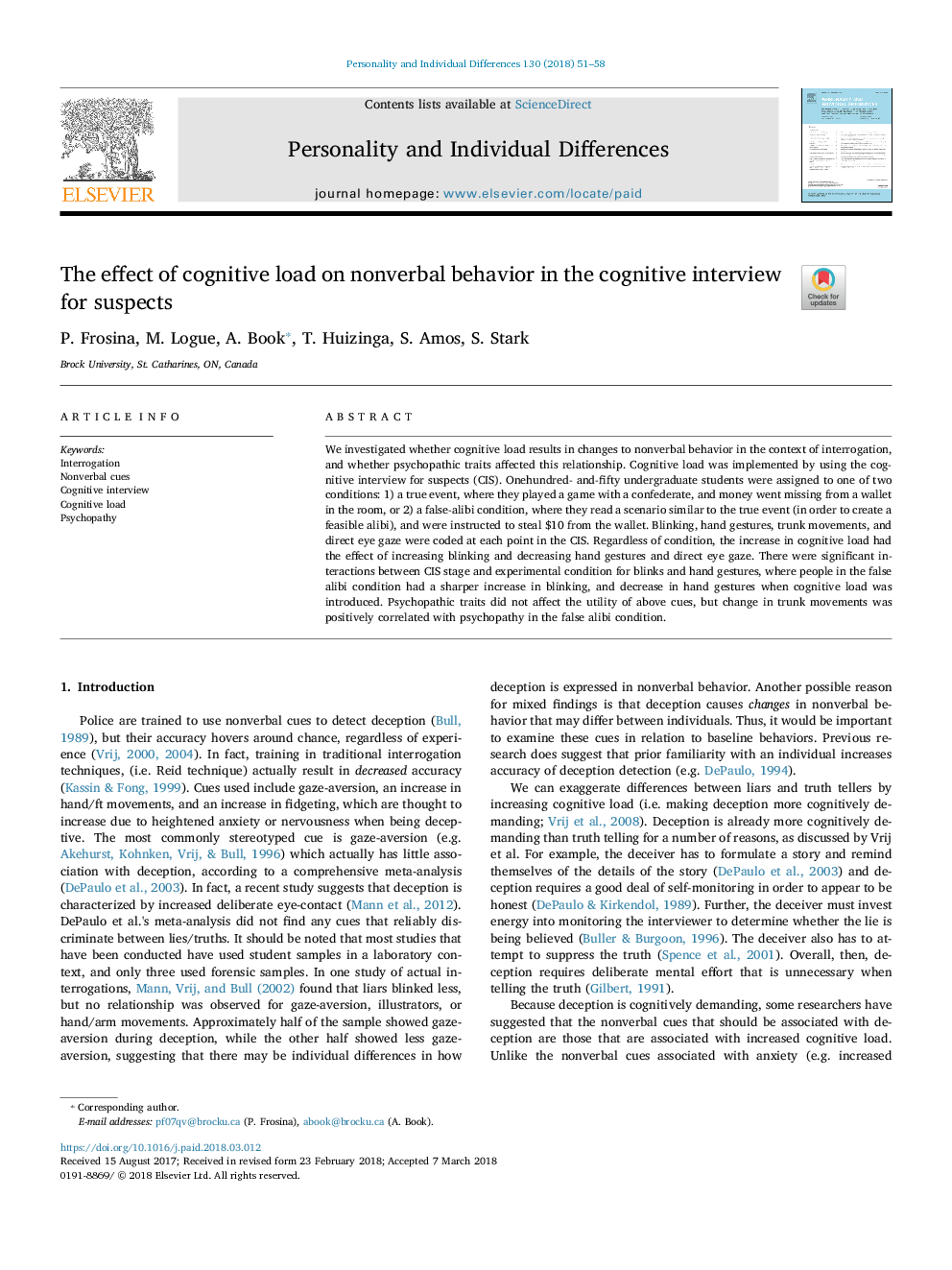ترجمه فارسی عنوان مقاله
تأثیر بار شناختی بر رفتار غیر کلامی در مصاحبه شناختی برای مظنونان
عنوان انگلیسی
The effect of cognitive load on nonverbal behavior in the cognitive interview for suspects
| کد مقاله | سال انتشار | تعداد صفحات مقاله انگلیسی |
|---|---|---|
| 125277 | 2018 | 8 صفحه PDF |
منبع

Publisher : Elsevier - Science Direct (الزویر - ساینس دایرکت)
Journal : Personality and Individual Differences, Volume 130, 1 August 2018, Pages 51-58
ترجمه کلمات کلیدی
بازجویی نشانه های غیر کلامی، مصاحبه شناختی، بار شناختی اختلالات فکری و روانی،
کلمات کلیدی انگلیسی
Interrogation; Nonverbal cues; Cognitive interview; Cognitive load; Psychopathy;

